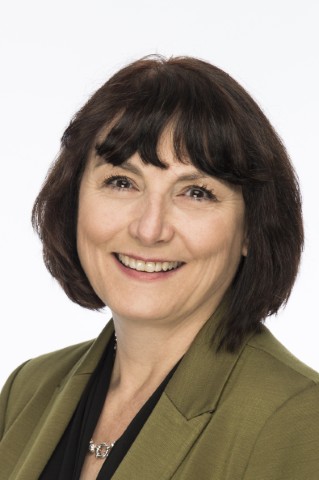September 26, 2018 Print
Gynaecological cancers, including ovarian, uterine and cervical cancer, are collectively the third most commonly diagnosed cancers in women.
More than 18,469 women in Australia are living with a gynaecological cancer and a further 6,073 women are expected to be diagnosed by the end of this year. Some gynaecological cancers can be difficult to diagnose and some can be difficult to treat effectively.
 As Chair of Translational Cancer Research, it is Professor deFazio’s role to integrate research with clinical practice.
As Chair of Translational Cancer Research, it is Professor deFazio’s role to integrate research with clinical practice.
Most major hospitals that treat women with gynaecological cancer have co-ordinated multidisciplinary teams of specialists to manage patient care. These teams typically include surgeons, medical oncologists, pathologists, oncology nurses, radiologists, and can also include specialists in cancer genetics, social work and psychology.
Here at Westmead, research is also included in the multidisciplinary team that manages gynaecological cancer. For Gynaecological Cancer Awareness Month, we spoke to Professor Anna deFazio to find out how research and clinical practice come together to tackle the disease.
As Chair of Translational Cancer Research, it is Professor deFazio’s role to integrate research with clinical practice.
“The treatment of gynaecological cancer patients is managed by a multidisciplinary team, taking all aspects of a patient’s care into account. At Westmead, we made the unique decision to include ‘research’ as a discipline in multidisciplinary care,” she said.
“In clinical practice, timelines are short, and decisions on the best care for each patient need to be made quickly. Research is a much lengthier process, so it’s a challenge to integrate the two.
“It’s taken us a long time, with consistent effort by clinicians and researchers, but research is now successfully embedded into the clinical setting at Westmead.”
Professor deFazio predominately works with ovarian cancer, which affects 1,600 Australian women each year. Although the outcomes for some gynaecological cancers, such as cervical cancer, are improving, outcomes for ovarian cancer remain comparatively poor.
 Professor deFazio is a part of the INOVATe study, which seeks to personalise ovarian cancer treatment.
Professor deFazio is a part of the INOVATe study, which seeks to personalise ovarian cancer treatment.
“New diagnostic methods and prevention strategies, such as the HPV vaccine to prevent cervical cancer, are helping to reduce overall rates of gynaecological cancers,” Professor deFazio said.
“But, only four in ten women diagnosed with ovarian cancer will survive five years after diagnosis and we have only seen small improvements in the last few decades.
“This is partly due to the aggressive biology of the tumours, and also the fact that at a molecular level, the ovarian
cancer in one patient can be very different to the ovarian cancer in the next.”
Professor deFazio is leading a program that aims to identify the differences in ovarian cancer cell biology between patients to help personalise treatment, and ultimately improve the survival rate.
The INOVATe study, which is open at ten hospitals across Sydney, supported by the Cancer Institute NSW, uses DNA sequencing and intensive molecular testing to understand the biology of tumours, and uses this information to help direct patients to the most relevant clinical trials.
“Ovarian cancer used to be treated as one disease with one treatment. We now know it’s much more complicated than that,” Professor deFazio explained.
“INOVATe seeks to understand the molecular characteristics of ovarian cancer, and personalise the treatment to each patient.
“Similar studies in other cancer types wait until standard treatments are no longer working and then begin sequencing. In this study, we are finding out as much as we can about each individual tumour as soon as the patient is diagnosed.
“Using this approach, if a patient relapses, we are pre-armed with the information needed to direct them to an appropriate, and potentially beneficial, clinical trial.
“This wouldn’t be possible without the combined efforts of researchers and clinicians across all of the hospitals and research institutes taking part in INOVATe, and has grown out of our strategy of integrating research into multidisciplinary care.”
Professor deFazio is proud to lead the INOVATe study, and to contribute to ovarian cancer research.
“Ovarian cancer is such a challenging disease,” she said.
“Our goal as cancer researchers is to extend the life and improve quality of life of cancer patients. In the past it took so long for results to be translated to the clinic, it could be hard to see the impact that our research was having.
“We are so fortunate to be working in a time when we can see the results of our research already making a difference.”
Gynaecological cancer facts
- Gynaecological cancers are cancers that affect the female reproductive system, including ovarian, cervical, vulval, vaginal, and endometrial cancer
- More than 6,000 Australian women are diagnosed with a gynaecological cancer each year
- Patient outcomes vary depending on the type of cancer
- Ovarian cancer has one of the lowest survival rates after diagnosis, with only 40% surviving more than five years.